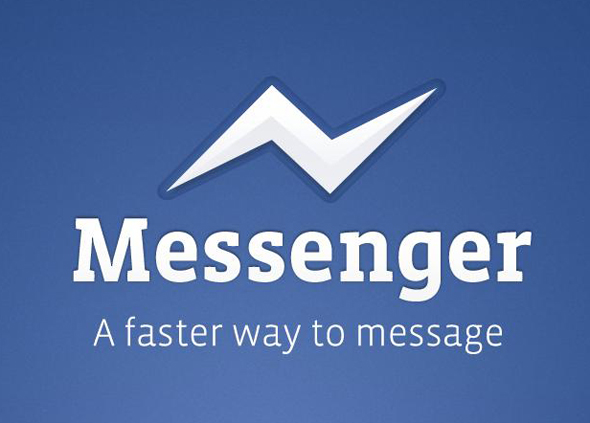Facebook To Turn Off Chat On Mobile. Now, Messenger Will Be The Only Way To Communicate
In an effort to drive users to its standalone messaging application, the social network will turn off the Facebook chat feature in its main mobile app and prompt users to download Messenger to talk with friends.
Facebook is taking its standalone app strategy to a new extreme. Here's how.
Facebook is starting to notify users they’ll no longer have the option to send and receive messages in Facebook for iOS and Android, and will instead have to download Facebook Messenger to chat on mobile.
Facebook’s main apps have always included a full-featured messaging tab. Then a few months ago, users who also had Facebook’s standalone Messenger app installed had the chat tab of their main apps replaced with a hotlink button that would open Messenger. But this was optional. If you wanted to message inside Facebook for iOS or Android, you just didn't download Messenger. That’s not going to be an option anymore.
cnet.comSo, if you care at all about messaging on Facebook, you will have to download the Messenger for your phone
The company plans to remove the messaging feature from its main Facebook app in the near future. “To continue sending messages on mobile, people will need to install the Messenger app,” a Facebook spokesperson said.
The rationale here is that it will make using Facebook Messenger better than if it’s crammed inside of the main already-crowded Facebook app
Currently, users who don't have Messenger are prompted to download it when going into the messaging tab on Facebook's main app.
Image via mshcdn.com“We’ve found that people get replies 20 percent faster on Messenger than on Facebook,” a Facebook spokesperson said. It also lets the company work on one dedicated messaging product, rather than split time between two apps.
Also, new features are being continuously added to the Messenger app. For example, just last month, Facebook Messenger for iOS received an update that let users create group chats and “pin” groups to get easier access to them. The Facebook spokesperson says: "We have built a fast and reliable messaging experience through Messenger and now it makes sense for us to focus all our energy and resources on that experience."
Earlier in 2013, Zuckerberg originally hinted that users should rely on the Messenger app when communicating
In an onstage talk TechCrunch's Josh Constine did with Mark Zuckerberg in November, the CEO revealed an explanation for today’s change: “the other thing that we’re doing with Messenger is making it so once you have the standalone Messenger app, we are actually taking messaging out of the main Facebook app. And the reason why we’re doing that is we found that having it as a second-class thing inside the Facebook app makes it so there’s more friction to replying to messages, so we would rather have people be using a more focused experience for that.”
Essentially, Facebook sees Messaging within its main apps as slow, buried, and sub-optimal overall. Its numbers probably indicate that people message more and have a better experience on the standalone Messenger app.
Although, forcing users to adopt a new messaging behavior could be very unpopular, regardless of the fact that chatting in Messenger is a far better experience than in Facebook's main app
Chatting in Messenger is a far better experience than in Facebook's main app, but some users might be disappointed by the fact that they now need two Facebook apps instead of one. In an age where home screen real estate value is at its peak, finding a place for one more app could be annoying.
But, as Facebook divorces Messenger from its primary experience, it will likely be able to add many more features, like free calling, which the company recently rolled out to Messenger. It might also mean that Facebook will shrink the size of its main app, making it work faster and at the very least clearing up a few MB's on your device. "Once the while process is complete, we expect the core apps to be faster," said the spokesperson.
However, there are a few exceptions to the new rule
First, lower-end Android devices with memory constraints won't be required to download Messenger.
Second, Windows Phone and tablet users will still see messages inside their Facebook apps.
Third, messaging will remain, for now, inside Paper, the company's recently launched news app.
What do you think about Facebook's this move? Let us know in the comment section.





